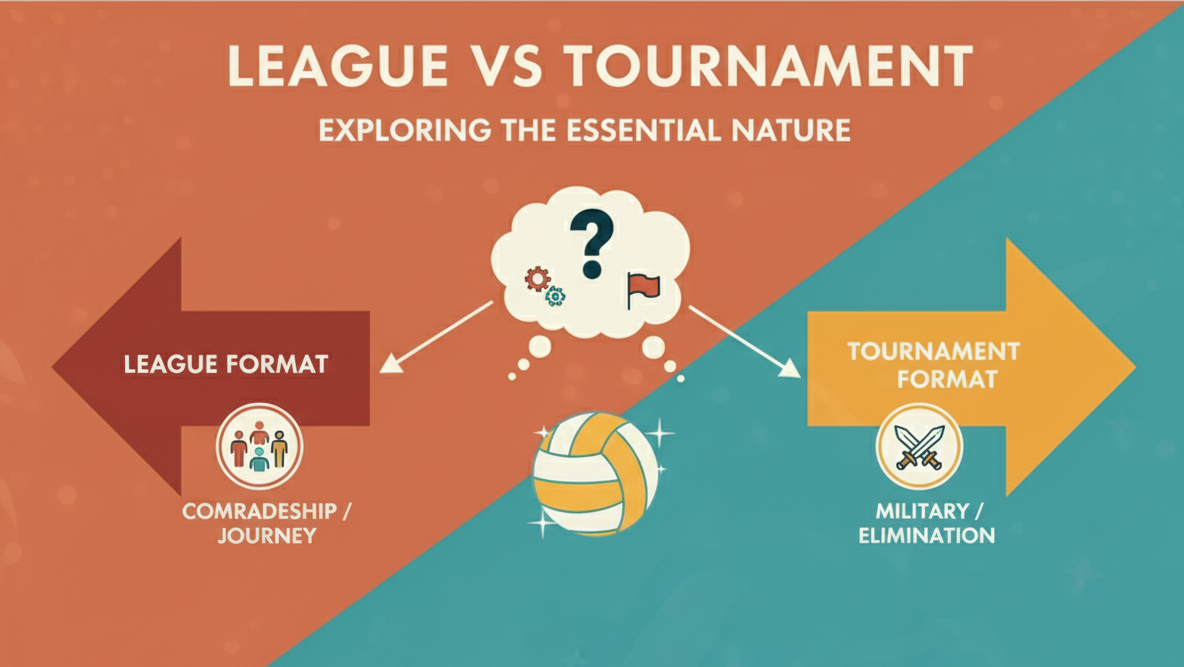League format & Tournament format.
These are competition formats that everyone has heard of, and most people understand how they work. However, these are merely methodologies. When we trace their origins, we discover their true essence – and it’s fascinating.
The Etymology of “League”
“League” translates to “alliance” or “sports federation” in many languages. It originates from the Latin word “ligo,” which means “to bind together for the same purpose.”
Looking at this etymology helps us understand the true essence of league competition. While league format is certainly a competition method where teams battle for victory, there’s an underlying consciousness of being companions who share the same goals and journey together.
The Etymology of “Tournament”
When we examine the origins of “tournament,” its essence seems to be at the opposite end of the spectrum from “league.”
“Tournament” translates simply as “elimination-style competition method” – merely describing a competitive format.
The history of tournaments is quite interesting when traced back to medieval Europe. Originally, tournaments referred to mounted lance competitions between knights. These events became popular during the medieval period and were positioned as skill competitions for knights or mock warfare exercises.
Looking at this history reveals the true essence of tournaments. At their core, tournaments had warfare and killing as a background, with strong connotations of military exercises for combat preparation.
The Opposing Nature of League and Tournament
We routinely treat league and tournament formats as representative competition methods, recognizing them casually. However, when we trace their origins and history, we’re surprised by how fundamentally different their essences are.
The essence of league is “companions who share the same goals and journey together.” The essence of tournament is “military exercises for warfare.”
How completely opposite they are!
Which Format Aligns with Youth Development Concepts?
Which format better aligns with youth development concepts – league or tournament?
Please consider this question carefully.
Let me repeat the key point one final time:
The essence of league is “companions who share the same goals and journey together.” The essence of tournament is “military exercises for warfare.”
The answer is clear.
For youth volleyball coaches, understanding these fundamental differences can reshape how we approach competition. League formats naturally emphasize collective growth, shared learning experiences, and the development of all participants. This philosophy aligns perfectly with long-term athlete development principles.
Tournament formats, while exciting and valuable in their own context, can sometimes emphasize short-term results over long-term development when they become the primary competitive experience for young athletes.
The key is finding the right balance and understanding what each format truly represents in terms of youth development philosophy.
Keywords: youth volleyball competition formats, league vs tournament coaching, youth development philosophy, volleyball competition structure, long-term athlete development, youth sports competition design, volleyball coaching philosophy, competitive balance in youth sports


